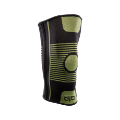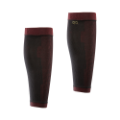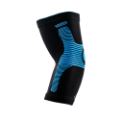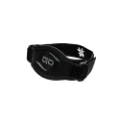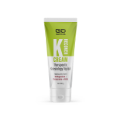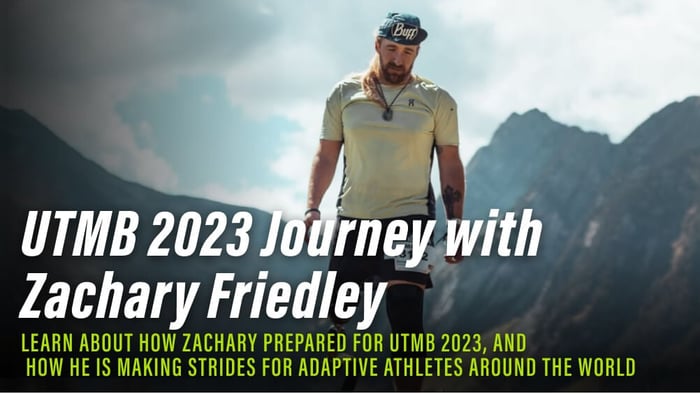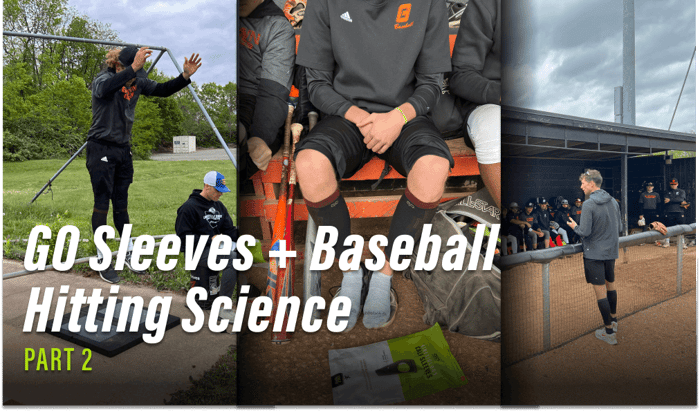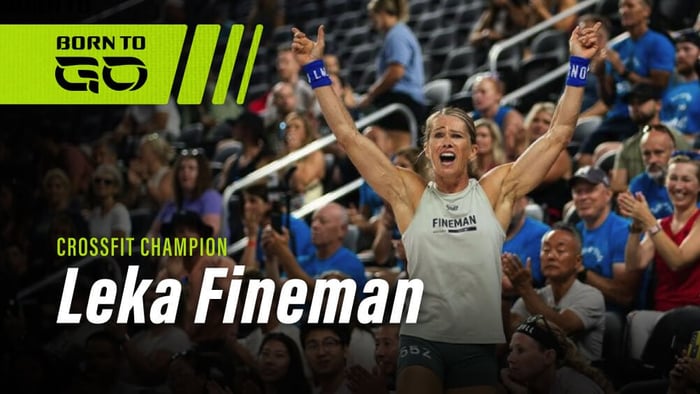Zachary Friedley, GO Sleeves athlete and founder of Born to Adapt, took on UTMB Mont-Blanc in Chamonix, France for the second year in a row with one goal in mind... finish the race and pave the way for adaptive athletes everywhere.
Zachary Friedley, professional trail runner, GO Sleeves advocate and founder of Born to Adapt, was born without his right leg. As a professional athlete who absolutely loves trail running, he runs with a prosthetic leg that includes a mechanical knee and a carbon-fiber running blade. He started an organization just a few years back called Born to Adapt with the mission to spread accessibility in sport to all athletes with disabilities. The Born to Adapt team is scaling their events around the world, because every year Zachary is seeing more adaptive athletes competing in the same races he runs in.
In August 2023, Zachary once again competed at the UTMB Mont- Blanc trail race, a grueling 40K trail race from Martigny-Combe, Switzerland, to Chamonix, France that is regarded as one of the most competitive trail ultramarathons in the world. While his experience was nothing short of inspiring, he also saw a growing number of adaptive athletes at this year's race, which reinforces his mission to make trail running accessible to everyone.
Read our interview with Zachary as he reflects on year two at UTMB Mont-Blanc, how he prepared to finish the race, and how race organizations need to accommodate the growing number of adaptive athletes every year.
Darren L: Zachary Friedley. One of the most multi-dimensional human beings I've ever known. I'm stoked you’re here to give us a recap of UTMB. Zach is a long-time friend of GO Sleeves. We love supporting his organization, Born to Adapt.
Zachary F: Happy to be here! I love trail running, and I run trails as a profession, but I also build the adaptive community into running, which doesn't exist right now. There might be standalone events here and there, but it's not the mainstream as a whole. So we started Born to Adapt two years ago and posted two successful events that focused on having adaptive athletes in the events. We're scaling those events and working on an event in February of 2024 for Born to Adapt New Zealand. That's the next big project I'm working towards as far as Born to Adapt goes. Since the last time I caught up with the GO Sleeves team, I've done many UTMB events worldwide, and I just got back from the biggest race in my career.
Darren L: Congrats, Zach. Let's dig into UTMB. Last year, it didn't work out since you missed the first segment cutoff time, so they cut your bib and swept you off the course. This year, it sounds like you crushed the first segment and got to the cutoff way ahead of time. You were killing it, things were good, and then it got tough and dicey, so take us from there.
Zachary F: So, for people who don't know, UTMB stands for Ultra Trail Mont Blanc. It is a race that takes place in France and is a week-long event. There are 10 different events, all the way down to a kids' run up to a 330K mountaineering adventure. The big event is the UTMB, about 106 miles around Mont Blanc. All the brands are there; everybody comes from all over the world to run this event, and you must qualify. It's a big deal inside the running community, and last year was my first time in one of their events called UTMB CC, which is about a 40K with 3,000 meters, essentially 10,000ft of vertical. They call it a fun run; however, world champions competed in this year's event. It's contradictory to calling it a "fun run" when world champions are racing. But it is very competitive, and it's super challenging for me to miss my leg above the knee. On paper, it looks impossible for someone like me to hop into this race and be successful. At last year's event, I didn't make the first cutoff by about 30 minutes, and my day ended short. Right after that event, I had the thought of not wanting to compete in this race again, but I woke up the next day thinking, "Alright, I want to do it again." So, I started to change different things about my life and training. At that time, I had just gotten a new prosthetic that was completely different from anything I'd ever worn in my life before. Many people didn't know that I was only about six weeks into this new prosthetic, which is very challenging for somebody running something high-level like that and switching out something as crucial as a prosthetic. The only thing I can compare is if you race in NASCAR, and suddenly you're racing F1. You're still racing but in a completely different machine, so that was what I was dealing with at the time. I got to dial it in with that prosthetic even more. We built another version of this leg in May of this year, which was phenomenal. It's the best piece of equipment that I've ever run with in my life. And then, right after UTMB last year, I changed coaches and started training with Eric Orton, famous for the book Born to Run. He's more dedicated to training mountain athletes, which suits my needs. We started working together, aiming to be ready for UTMB 2023, all while preparing for Tarawera, New Zealand, a 21K with a couple of thousand feet of vert, and I crushed it. It was the best race I ever had. And then we had another build-up to a race in Spain called UTMB Val d'Aran, which is a European major and, they say, one of the most challenging courses in the UTMB circuit. I did their sky race, which is up and over a mountain, and I crushed that one and beat the cutoff by about 40 minutes. I used this race as a training run and was still flourishing in the UTMB environment, which is super competitive, so that was what started my European race series in early July.
Then I went to Zurich with ON Running, working in their labs. That's my primary sponsor, and we are innovating different products for my needs. We had a couple of different prototypes of tread for my blade that I got to use while I was living in Chamonix, France, for the summer training for UTMB Mont Blanc. It was amazing to wake up every day. I lived in the Valley in a town called Argentière, which is a 10-minute bus ride from Chamonix. So, out my door, I could reach any trail you could dream of. I ran through the glaciers, and I ran the UTMB course. I broke the course into segments, and we started to plan how I would run it and how I should feel when I arrived at each checkpoint. It's a very different course all the way through. You have climbs straight into descents, you have flats, and you have wooded trails. There's a little bit of everything, so I needed to know the course from start to finish so there were no surprises. On race day, there were a lot of surprises. So, what happened on race day for me was an actual winter storm, which was unseasonably normal for the time of year. I saw high winds, rain, and precipitation all day from start to finish, and I was running in some of the craziest mud I've ever seen. There were surprises, and I had to figure it out on the go. Luckily, ON Running and I had been working on this prototype tread with an insane grip. I had one prototype that I used during the training block. I went back to Zurich to meet with the ON Running Team a few days before the race to alter it and make it a little better, but it was supposed to be a "just in case" tread if it were to get wet or slippery up in the high altitude. It came out of the kit immediately, so it hadn't even been tested. The tread was why I was able to succeed in the race. It gripped onto things so well. The mud was about 6 inches thick, and the rocks were super wet in some spots. It was snowing at the top of the mountain with about 70 MPH winds. I cruised all day and had no problems until I descended from the big climb, and I was running with my friend and ON Running trial manager David Kilgore. He and I were the dream team. I would get into these moments thinking I was moving so great, and David would reassure me we were ahead of schedule by keeping track of our timing. We were at the first cutoff point an hour before the actual cutoff time, which was a huge improvement considering the conditions that we were in.
Then I made it to the second cutoff point 15 minutes before the cutoff time, which is still pretty good considering you're climbing this mountain, and it goes up and up and up and up and up, and that's where the snow started falling. The visibility was crazy, and you couldn't see probably 10 meters in front of your face, and the snow was hitting your face and was super cold. I've been up there five or six times because I lived and trained near that section of the race all summer, so I'd spent some time there. If I hadn't spent time in that area previously, I would have been freaked out at that moment because you're high up, you're super exposed, and it gets nuts up there. Luckily, I was comfortable. Someone handed me some really good soup. I don't know why that's important in the story, but the soup made me feel amazing, and I felt better than I did when I started the race as we started to make our descent, and that is when things went south with UTMB. The sweepers came up on me again, and immediately when I left the aid station, they said, "Hey, you have 10K to go and two and a half hours. You're not gonna make it. You should quit". Which is insane to say to somebody, and that's kind of when it started to get dicey with UTMB.
I should rewind to last year's event. I didn't cut off, and UTMB reached out to me with this inclusion employee they hired to start executing best practices to be inclusive of all athletes who wanted to compete. They had been having calls with me for almost a year leading up to this race, discussing how they could make it better and be more inclusive by having a guide runner or extending cutoff times for people like me who may need a bit longer. One idea was to allow ten hours to finish the race because I can run super fast on flats and charge up hills pretty well, but I take extra time on the descent. So we had all these discussions, and they even sent me a slide deck with all these changes they wanted to implement.
They wanted to do it at UTMB 2023 MCC, but they ghosted me about a month before the event and wouldn't return emails or calls from me, my coach, my manager, or anyone else. They ghosted me, so they left me hanging with many things that were presented, and I had a lot of follow-up questions on how it would be implemented. When David and I went to pick up the bib the day of the race, I said, "This is my guide runner, David. What does he need to be identified at the aid stations as such?" They said no one can have a guide runner; you will be disqualified for having a guide runner. They were so distraught that I even brought up the words guide runner and all these UTMB employees were standing in front of me, acting like, how dare I say I could have a runner on course. So, I pulled up an email I got back in March and showed him that I had been permitted to have a guide from a UTMB employee months prior. They were shocked to see the email and confirmed that it was sent by somebody who works at UTMB, but we have zero knowledge or information for you, so we don't know what to tell you.
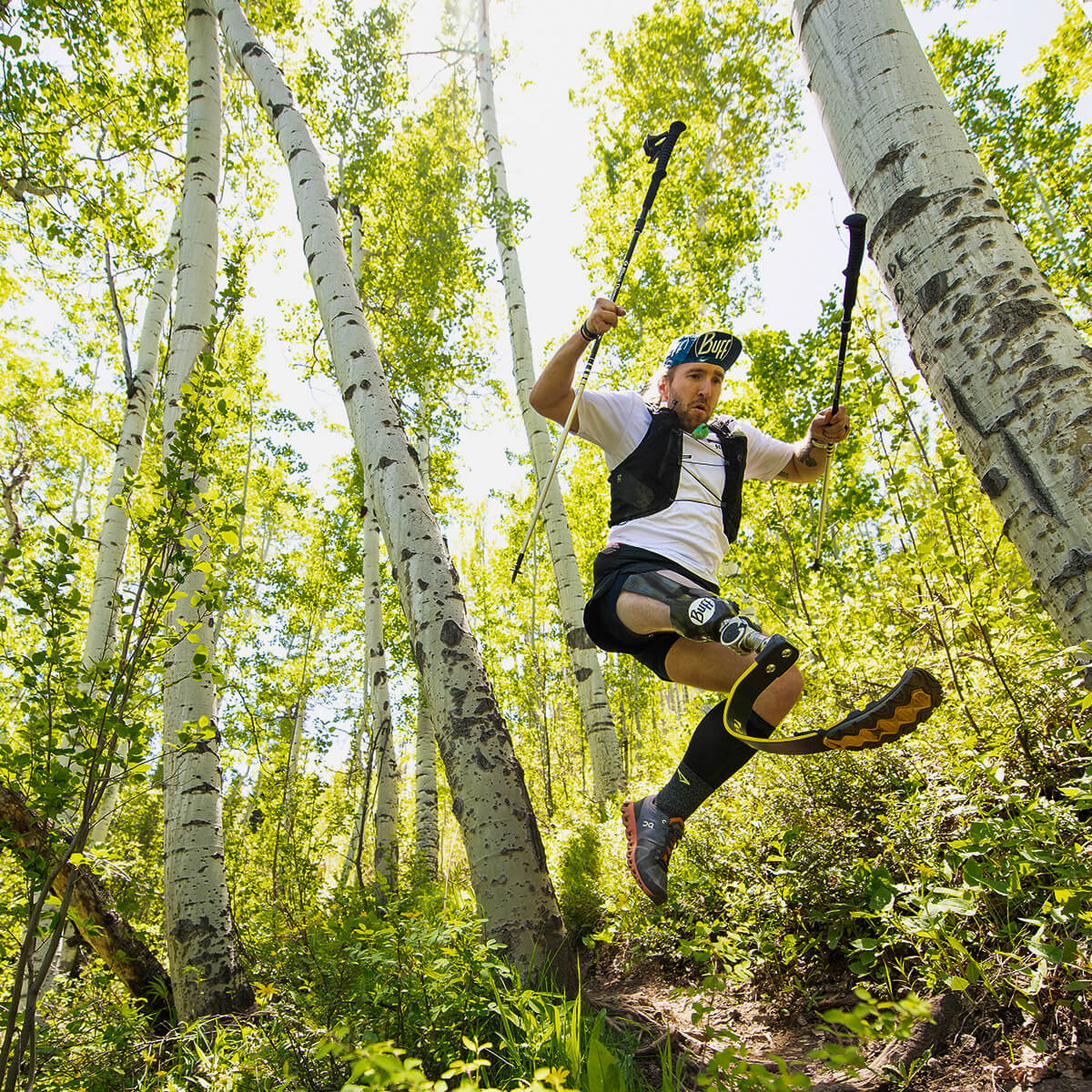
Darren L: That is unbelievable!
Zachary F: David had been in the UTMB office inch and told them how much time and energy I had put into this race and my training. Explaining that I am a professional athlete who wants to compete, and they were treating me like I don't matter. They assured David that they would figure it out. But they didn't. So we're sitting there trying to figure out what to do the day before the race. A world major trail organization telling me that I needed to figure it out on my own, so at that moment, I started pulling out all the papers they gave me in this race bag. And boom, there was a bib that said "guide" on it that they had zero knowledge of. So that started it off, and I knew that shit was going to get weird. I knew weeks before this due to the lack of communication from the team.
Here we are, back on course, descending on, for me, the most challenging section of the course. Luckily, David was behind me because there were certain times when I would stop, and the sweepers were so close that they would physically hit David with their bodies. Imagine a guy missing his leg, descending a mountain in a snowstorm. It was already challenging enough, and then I got eight people behind me breathing down my neck, telling me I would not make it and that I should quit. David was livid because they were updating us on time the entire way down the mountain, not believing this was our reality. When we got to the bottom, I still had about 20 minutes to the next aid station, and they were still trying to get me to quit.
I got to the last checkpoint and was about twenty minutes over. During that time, the ground team, with my wife Meaghan and some other people from North Face, had called the UTMB office to notify them that I was supposed to get the entire 10 hours of this event. It's not happening. What the hell is going on?! There is a lot of shit happening in this race that should have already been squared away weeks ago. I get to the aid station, and Meagan tells me that another athlete came in right before me, and he was after the cutoff, and they let him continue running with no hassle. I come through right after, and they're trying to cut my bib again, the same thing they did last year but this year. I felt an edge this year, and I was ready to fight for my opportunity to finish this race. I remember being in this tent, thinking that they were going to scan my bib, and all of a sudden, the scissors came out. The second I saw the scissors, I threw my piece of watermelon down and just bolted out to the trail. My ON Running teammates were yelling and screaming with encouragement, and David and I were ready to finish this race. So we got back on the trail and noticed that they were pulling up all the markers. So here I am, flying down this trail. It's about dark. I'm mentally fatigued from the day David's fatigued, and now we have no markings for this damn course on the side of this mountain. In the dark. In the rain. In the mud.
So now we have to navigate ourselves off this mountain that has trails everywhere. There are so many different ways you can go. It's not always very straightforward. So we had to figure our way off the mountain back into the Valley because they pulled the plug on us. Luckily, I had my watch loaded with the map, so we got into town, even though I'm sure we got lost a few times. But if you know David Kilgore and myself together, we're just having a blast, laughing about how crazy it is that they did it to the guy in a blade. But screw them. We will make it to Chamonix and cross the finish line because that's what we came here to do. So we did. We finished. We made it to the finish line. There are videos of me finishing, dropping my poles, and my whole ON Running team was there, just screaming and yelling. But it was that community that we brought from ON Running that made this experience possible. So I finish in 11 hours, and some change and the race cutoff is 10 hours and change. Would I have made it there in 10 hours if the course would have been marked? I don't know, but I didn't have the opportunity.
UTMB also discussed with me in prior emails to give me some extended time to finish because I am an AK runner, similar to how the Paralympics are run. At that moment, I was an unofficial finisher. And to give you a picture of how disorganized they were, a couple of days later, I got an email from the inclusion employee who wanted to invite me into their office to celebrate the successes of this event for me.
David and I agreed to meet and asked, "What successes are you talking about? They tried to kick us off the course; they were hovering over him down the mountain. They removed the course for us". The woman had no idea. She put her hands on her face and said, "Oh my gosh, I cannot believe this happened to you."
Darren L: The finish line video looked like a massive celebration. Your community of your family, friends, and the ON Running team showed up for you, which is almost better than the celebration from UTMB.
Zachary F: Totally. And I didn't need the organization to make it official on their website to know I accomplished something. However, a few weeks after the race, for whatever reason, I went back to the results to check my times for when I hit certain checkpoints, and they changed my results to an official finisher. So we did something.
It was a wild experience. I knew it had the potential to be like that, but then you throw in the elements of the weather, then the removal of the course markings, it was just a battle. I kept telling myself all the way through that I was ready for this. I felt good almost the entire way, except for two hours, where I struggled a bit, but that's normal for a 12-hour day. We moved the needle and put more pressure on UTMB to make changes. I will double down with my sponsor, and we will keep showing up. I think comparing last year's race to this year and seeing how much improvement I made, I feel like I belong in this space with these other athletes, and I'm just ready to keep showing up and proving that.
Darren L: There's a lot to unpack here. I'm hearing you talk, and inside of me, I'm like, “Screw these guys. I'm not coming back. How dare they.” But I am not getting that from you. How are you going to approach this?
Zachary F: That is how I felt the day after the race. Why would I want to spend my time with these people who treat me like this, and I can race anywhere I want worldwide? But it's bigger than me. This stage is the pinnacle for trail running, so if we're trying to build out elite levels for running for adaptive athletes, someone has to be this person to push the envelope, and that's me. Luckily, I'm sponsored by a big brand that gets division, supports division, and puts me in these positions. I'm just the guy taking the punches on the chin right now. I want to avoid somebody in our adaptive community having the same experiences as I did at UTMB without the massive support of the brand sponsorships because I want them to be treated differently. I am very privileged to have this type of support, so I want to change these organizations for other adaptive athletes. This is just part of the process, and a couple of days removed from the race, I accepted that this is just how it is and committed to keep racing.
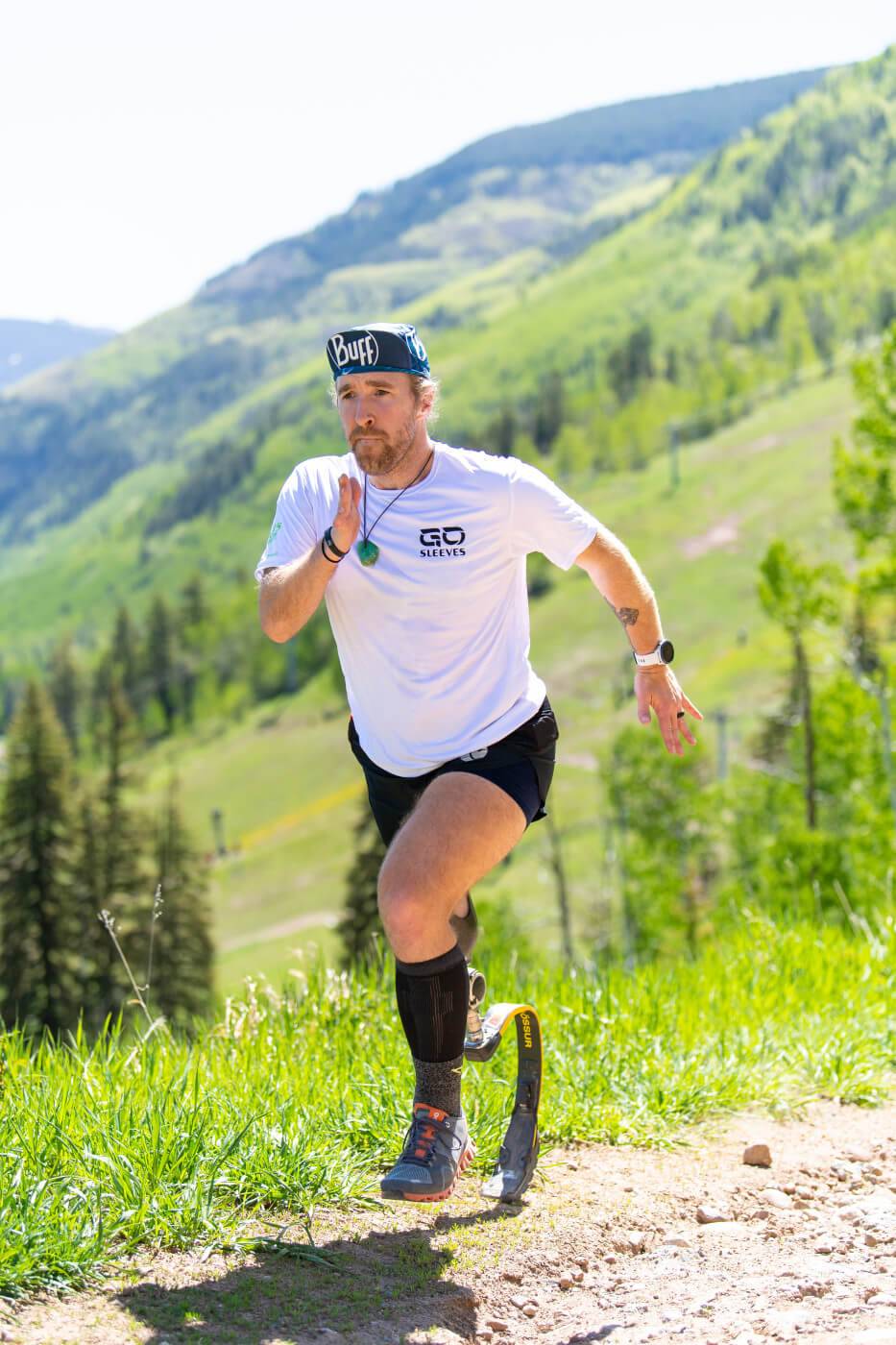
Darren L: The fact that you're willing to go back and keep pushing is so inspiring. I mean, that's the point, right? That's why you're doing this in the first place. It's not really about your experience per se, but it's your experience creating the opportunity for those who follow. And you're right that it has to include all of that preparation. The fact that you had a tread available to you that could allow you to finish the course because of the generosity of ON Running, you won't be the only one who needs that support.
Zachary F: It took me living there for many weeks to complete this race, so there's tons of support on the back end of training and preparing for a race like this. If it wasn't for ON Running posting about me crossing the finish line on their social media, I felt like I would have been silenced. So, the backing of a huge organization like that means everything.
And I wasn't the only adaptive athlete at the race this year. An athlete from Australian is missing his leg below the knee and finished, and an athlete named Amy ran UTMB missing her leg below the knee and made it 100k in before she got cut off the course. So, these athletes are starting to show up. Last year, there may have been just me, this year, at least 4, and next year 8, then 16. They must change to accommodate because we won't stop showing up!
Adaptive runner and GO Sleeves "Trail Blader" Zachary Friedley is on a mission to raise awareness and opportunities for adaptive athletes. This amazing story of humanity and vulnerability shows the common ground between hardcore ultra-runners and adaptive amateurs – as they discover they are more-than-capable athletes. Watch the Born to Adapt documentary, presented by GO Sleeves, or read about Zachary's story. Zach's journey at UTMB was documented in the short film "Trail Blader" by ON Running. You can learn more and watch the documentary here.
